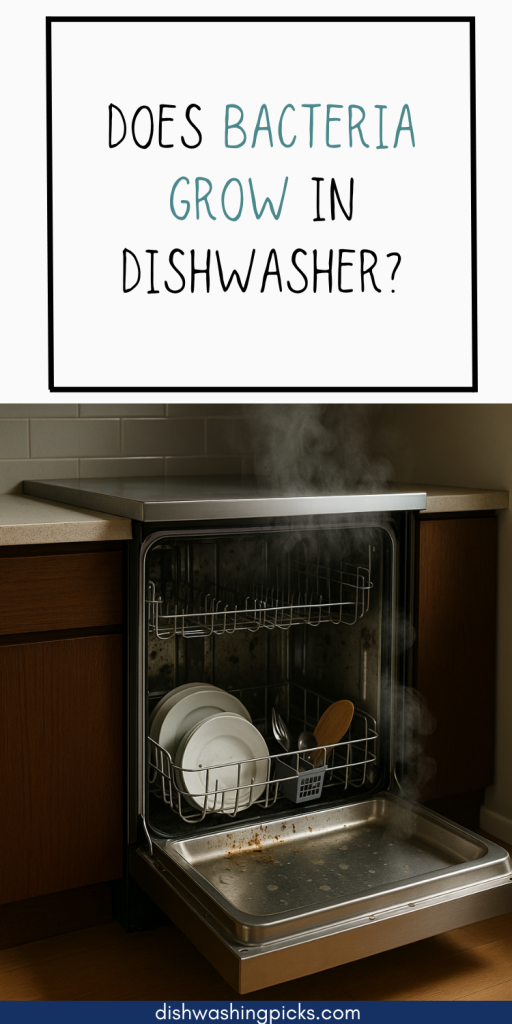
Wait… Isn’t My Dishwasher Supposed to Be Clean?
Ever opened your dishwasher expecting sparkling freshness… but got a whiff of something funky instead? Yeah, you’re not alone. While dishwashers are champs at cleaning your plates and mugs, they’re not invincible. In fact, they can become sneaky breeding grounds for bacteria and even mold. Shocking, right?
But how can something that sprays hot water and detergent be dirty? Let’s unpack the science (without sounding like a boring textbook).
Yes, Bacteria Can Grow—Here’s How It Happens
Alright, here’s the deal: dishwashers create a warm, moist environment that’s prime real estate for microbes. Add in leftover food particles, grease, and soap scum—and boom—you’ve got a cozy little bacteria hotel.
Some of the most common culprits include:
- E. coli – If there’s raw meat residue, this one may sneak in.
- Salmonella – Yep, especially if dirty utensils sit too long.
- Fungi and mold – Particularly around the rubber seals or in the filter.
Imagine this: Your dishwasher is like a hot tub… for bacteria. Gross, but accurate.
Where Bacteria Tend to Hide
Not all parts of your dishwasher are equally “infected.” Some spots are sneakier than others:
- Rubber gaskets and seals – That ring around the door? Perfect mold playground.
- Filters – If you’ve never cleaned your filter… maybe go do that now.
- Spray arms – Tiny holes can get clogged and dirty without you even noticing.
It’s not visible grime that’s always the problem—it’s the stuff lurking where your sponge doesn’t reach.
How to Keep Your Dishwasher from Turning Into a Petri Dish
Here’s the good news: this is totally preventable. You don’t need to bathe your dishwasher in bleach or hire a hazmat crew. Just follow a few simple steps:
- Clean the filter weekly. (Yes, weekly. Set a reminder.)
- Wipe down the seals and edges. A microfiber cloth + vinegar = magic.
- Run a hot vinegar cycle once a month. No dishes—just a cup of vinegar on the top rack.
- Use baking soda for odors. Sprinkle it in the bottom and run a short, hot cycle.
Try thinking of it this way: Treat your dishwasher like it’s part of the family. Would you ignore a funky smell coming from your bathtub? (I hope not.)
Do Modern Dishwashers Kill Bacteria Themselves?
Good question! Many modern dishwashers have sanitize cycles that reach 150–160°F (65–71°C), which can kill most bacteria.
But there’s a catch: If bacteria are tucked away behind gunk or stuck in the filter, that hot water might not reach them. So even with a sanitize setting, cleaning and maintenance are still a must.
Final Thoughts: A Dishwasher Isn’t a Germ-Free Zone—But It Can Be Close
So, does bacteria grow in dishwashers? Yes. But should you panic? No.
With a little TLC and regular maintenance, you can keep your machine fresh, functional, and far from funky. Think of it as a spa day… for your dishwasher.
Now go on—give your dishwasher the attention it deserves. And next time you pop open that door, it just might thank you with that clean, steamy freshness we all love.
